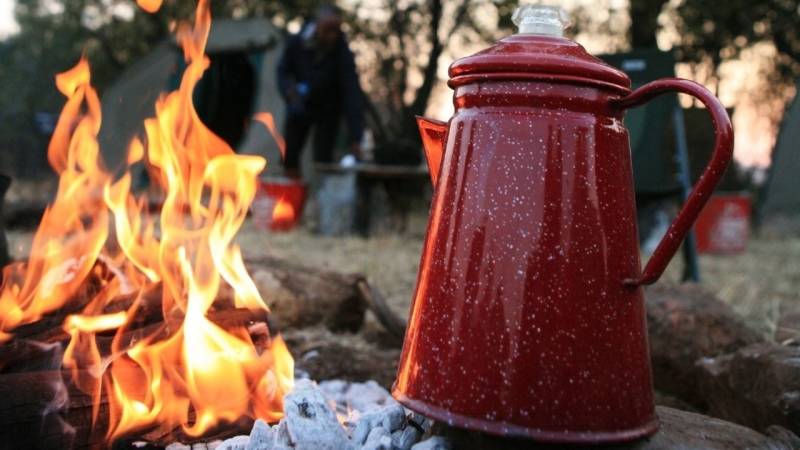
5 tips for campfire safety that all campers should observe
👉 The key facts from this guide
- Find out about the fire regulations of the campsite and respect the rules.
- Use existing fire pits or create a safe fire pit away from branches and power lines.
- Light the campfire with matches without using flammable liquids.
- Use only native firewood to avoid introducing diseases and pests.
- Have a fire extinguisher, bucket of water, or shovel ready to quickly extinguish the fire if needed.
- Maintain a safety distance of at least three meters around the fire pit.
A camping trip is only complete with a blazing campfire.
The warmth of the fire and the soothing sounds it makes transport you to a whole new world.
But a campfire must be handled responsibly - it must be done, maintained, and extinguished properly to avoid dangers.
Follow these 5 safety tips for a campfire to have fun and stay safe outdoors:
Follow the rules of the storage space
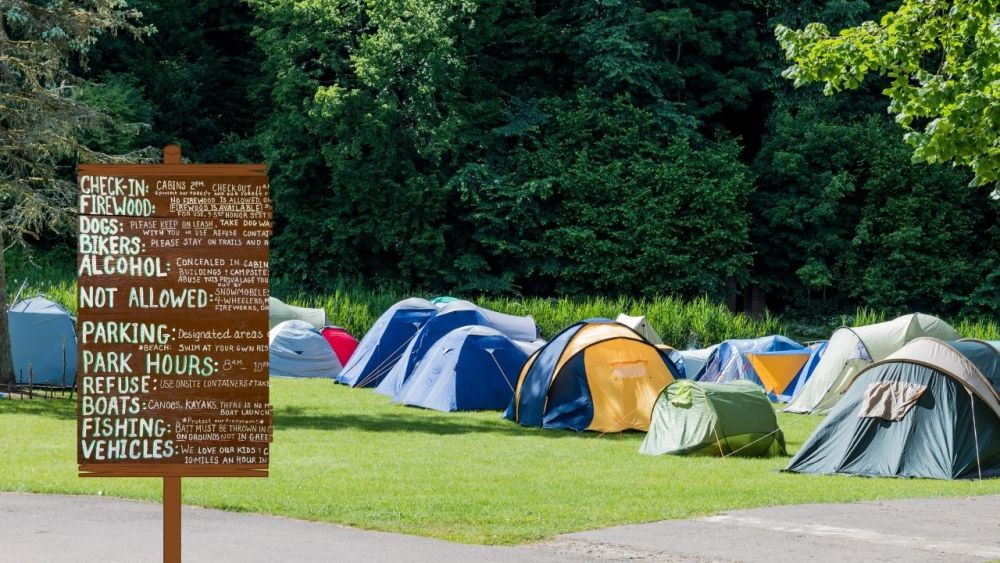
Before you start a campfire, check with the rangers about the campground's fire regulations.
These rules are constantly changing - sometimes there is a temporary ban, especially when the risk of forest fires is high.
Pay attention to the signs and ask the campsite staff about the current rules for campfires.
Using and Building Fire Pits
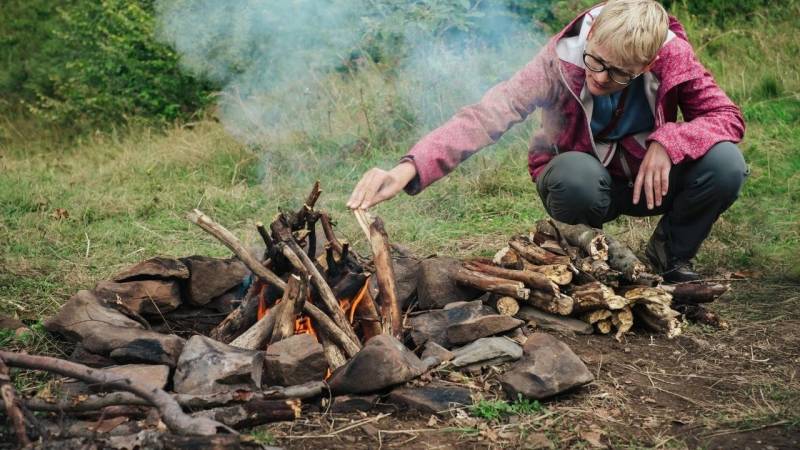
If the campsite has a built-in fire pit, this is the only place where you should make your fire.
Before lighting a match, you must clear the pit of any debris.
If you live in a more remote location and there are no fire pits available (but campfires are allowed), you can make a fire by digging a shallow hole in the ground and lining it with stones.
Make sure not to set up your campfire near low-hanging branches and power lines.
To prevent accidents, a radius of three meters around the fire pit should be kept clear.
Start and ignite safely
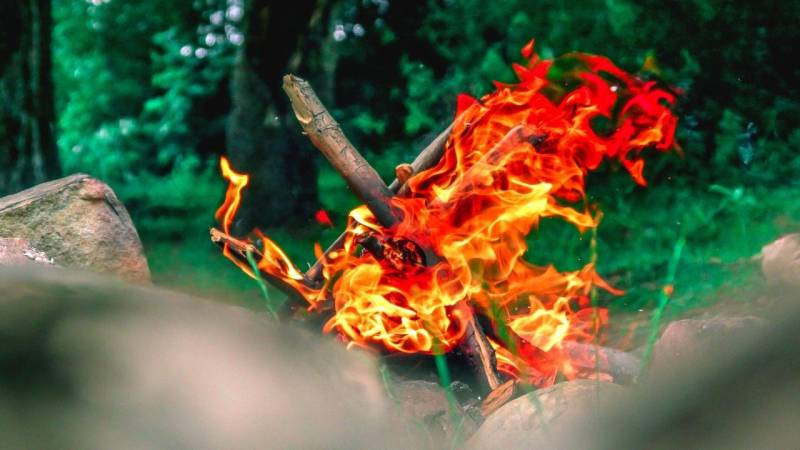
When the wood is ready, it's time to light the campfire.
Use a match for this, but never use flammable liquids like gas, kerosene, or lighter fluid.
Make sure the match is completely extinguished before you throw it away. It's best to throw it into your campfire to be safe.
Don't bring your firewood
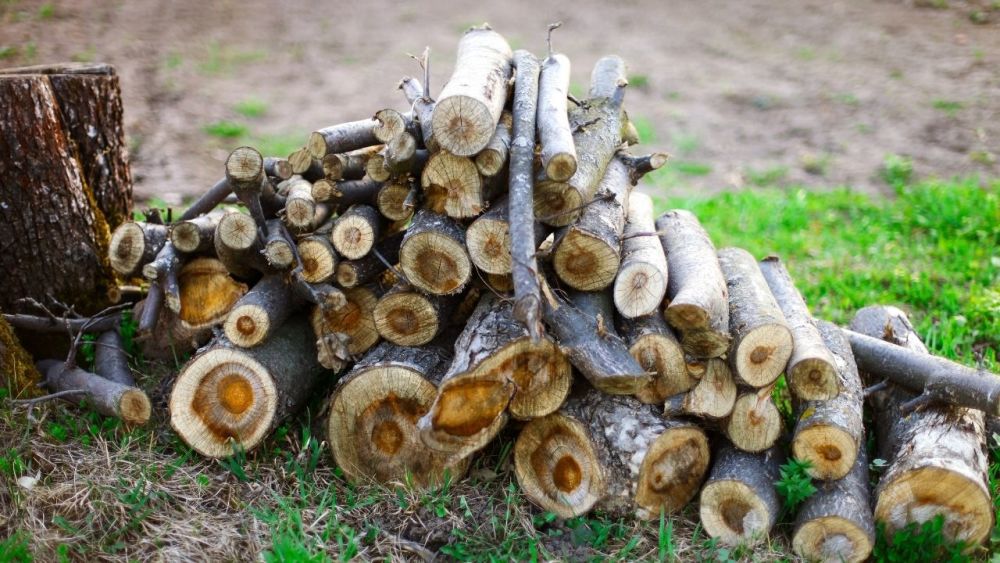
To start the fire, you should only use local firewood (which you can buy at the campsite or nearby stores).
If you bring firewood from home, for example from a place 8 hours away, you could introduce diseases and tree-damaging insects that could destroy the ecosystem of the campsite.
Keep a fire extinguisher ready
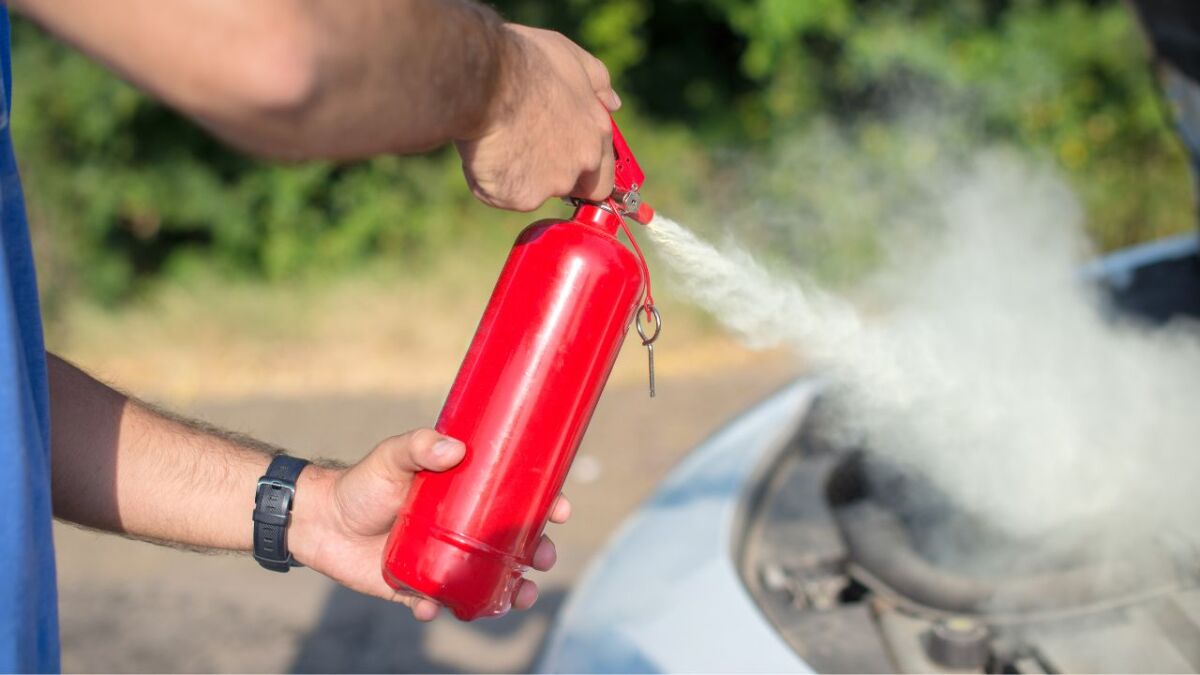
Once the campfire is burning, sparks and bursts of flame can be expected.
Keep all individuals at a safe distance and have a bucket of water nearby.
You can also use a shovel to throw dirt or sand onto the flames to contain them.
Or you could try watering the ground a few meters outside the pit to extinguish any flames that may immediately jump out.
Do you want to make packing for your next camping trip easier? Read: Checklist: What should you not forget when camping? (+Packing list as PDF)
Here is a summary of key points in tabular form:
| Rule | Explanation |
|---|---|
| Follow the campsite's fire rules | Find out about the current rules for campfires in advance. |
| Use existing fire pits | If available, only make your fire in designated fire pits. |
| Build your own fire pit safely | Build a fire pit with stones and soil, far away from trees and power lines. |
| Light cautiously | Use matches, not flammable liquids. Extinguish matches before discarding them. |
| Use only local firewood | Don't bring wood from afar to avoid pests. |
| Have extinguishing agents ready | Keep water and fire extinguishers close at hand for emergencies. |
Follow these simple safety tips for your campfire to operate it safely and professionally.


Author of the guide
Martin Gebhardt
Hey, I'm Martin. On my blog, you will learn the basics and numerous details about living in the wild. I think survival, bushcraft and the good life in nature are the keys to happiness. Find me here on Instagram or on YouTube. You can find more about my mission on the About Me page.
Was this guide helpful?
11 people found this guide helpful.
5.00 out of 5 points (11 Ratings)
Comments (0)
This post may contain affiliate links. So if you click on the links and make a purchase, I will receive a small commission at no additional cost to you. Click here, to learn more about it.


